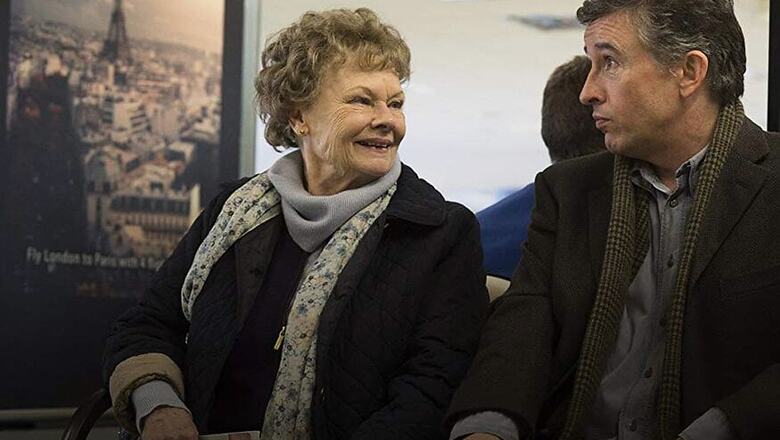
views
There has been a debate for years. A debate about who influences whom. Does cinema nudge society on to a particular way of thinking? Or, is it the other way round. Directors and actors have themselves been divided on this question. Outside the world of cinema, social thinkers believe that films have a huge, overpowering impact on the minds of men. Whatever this may be, there have been times when I have seen communities copying movies – sometimes consciously, sometimes no so consciously.
Thursday's newspaper report about two nuns from the Missionaries of Charity in Ranchi selling the babies of unwed mothers to childless couples for anywhere between Rs 50,000 and Rs 150,000 each is shockingly similar to what happened in post-war Ireland. The nuns at Ranchi seem to be reportedly indulging in same heartless practice that I saw in a movie titled Philomena – which premiered at the Venice Film Festival in 2013.
Philomena was based on a book written by Martin Sixsmith about the malpractices in an Irish convent in the 1950s. Directed by Stephen Frears, the movie could not have found someone more apt than Judi Dench to play the title role, of a mother forced to give up her child in the Irish convent. The actress plays the older Philomena, whose story the film is all about. And what a moving piece of work it was, so moving that it had audiences crying. Or laughing sometimes.
Follwing an Irish girl, barely 14, in the early 1950s who is abandoned in a nunnery by her family after she gets pregnant, the movie plots the suffering Philomena has to endure. Forced to do the dirtiest of jobs there, she is separated from her baby son, allowed to see him only once a week. Finally, he, Anthony, is given away in adoption to a rich American family. For the next 50 years, the disgraced girl, Philomena, lives with the beautiful memory of her son, till one day, a chance encounter with a former BBC political journalist helps her realise that she must try and find her son. She must get her secret out.
In what seemed like a winning role – and of course a winning work, perhaps Frears’ career best — Dench after bidding goodbye to M in the James Bond series (she dies in Skyfall), gives a clincher in and as Philomena, bonded to silence for half a century before actor Steve Coogan’s Martin Sixsmith agrees to accompany her to Washington to try and look for Anthony.
Sixsmith’s book on Philomena’s travails, published in 2009, worked not only as a catalyst for thousands of such “shamed” Irish mothers who also lost their children in a similar manner after the War, but also as the basis for Frears’ beautiful film. The best part of it was that the pairing of Dench and Coogan even led to comic relief.
Coogan, who also co-wrote the screenplay along with Je Pope, said at the 2013 Venice Festival that the movie needed this wit and humour. “Otherwise it would be just a tragic, depressing story. The comedy was important to lighten the mood, and sugar the pill. It was also important we didn’t overdo it. I said, ‘If I mug too much, or if my face becomes too animated, tell me to turn it down,’” Coogan averred during a conversation.
At the same conversation, Frears dared to say that he would want Pope Francis to see Philomena. “I am very, very keen that the Pope should see it”. Agreeing with Frears’, Dench, who was also present there, described the film as “a shockingly terrible story, and it rightly should be told.” And not just that, the movie was also a bold attempt to bring out into the open what was nothing short of scandal. Venice seemed bolder by far to screen it, and in the Festival’s top Competition slot. In an essentially Catholic country such as Italy, the most thunderous clap of cheers came half way through the film screening when Sixsmith looks at Philomena and mutters a four letter word about Catholics.
As one reporter wrote then : “Italy is both a Catholic country and a robustly anticlerical one, but the whoops from the audience weren’t a reaction to an ecclesiastical obscenity. They expressed a passionate connection to the movie's story, inspired by true events, of a woman looking for the son that the Church stole from her a half- century before”. The “thieves” were Northern Irish nuns who ran some sort of a slave-labour home for unwed mothers that was akin to the institutions for “fallen girls” documented in The Magdalene Sisters, which won the Golden Lion at Venice in 2002.
In Philomena, the home is called Roscrea, where wealthy couples could buy a child for $1000 and take it away without even its mother being allowed to say a final goodbye. Conveniently, the documents on adoption were destroyed, leaving little chance for the miserable mothers to even hope for locating their children.
A powerful movie, a lambasting social document, Philomena, played in my mind all over again when I read the lurid story in Thursday's newspapers. Admittedly, there is a difference. While the Ranchi nuns did not force mothers to part with their babies as the Irish Sisters had done decades ago, money changed hands in both cases. In Ireland, the nuns made quite a pie selling children to rich couples. In Ranchi, the Sisters made good money as well. Or, say the reports.
If they are true, Mother Teresa, who founded the Missionaries of Charity in Kolkata, would be a terribly unhappy person.
(Author, commentator and movie critic has covered the Venice Film Festival for more than 15 years, and will be back there this Autumn.)




















Comments
0 comment